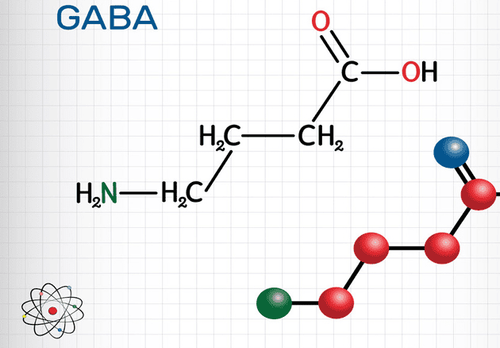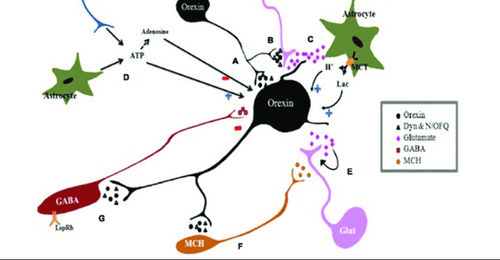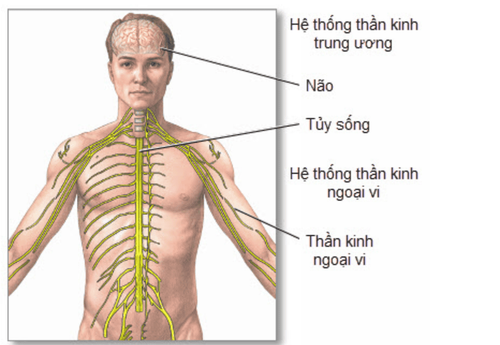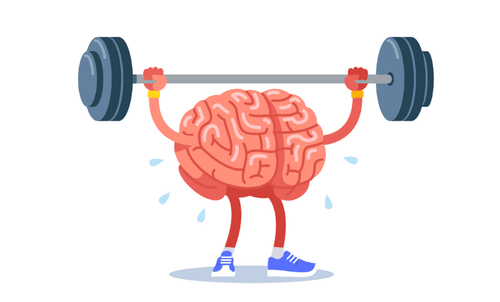This is an automatically translated article.
Dopamine hormone is one of the most important hormones of the brain that brings many positive effects to people both mentally and physically. Dopamine is also known as the "happy hormone". Dopamine is involved in feelings of happiness, motivation, memory, the ability to focus and regulate body movements.
1. What is Dopamine?
Dopamine is a type of neurotransmitter. Your body makes this hormone, and the nervous system uses it to send messages between nerve cells. That's why dopamine is also known as a chemical messenger because it basically acts as a chemical messenger between nerve cells.
Dopamine is released when the brain is in a state of excitement.
When you associate an activity with pleasure, just thinking about it is enough to raise dopamine levels. It could be a favorite food or a shopping spree.
Example: You love eating chocolate chip cookies. Your brain can increase dopamine when you smell them being baked or see them coming out of the oven. When you eat, dopamine acts to reinforce this craving and focus on future gratification.
Now imagine that you've been craving those cookies all day, but your co-worker threw them away for some reason. Your frustration can lower your dopamine levels and cause your mood to drop. This can also increase your desire for double chocolate chip cookies. Now you crave them more than ever.
In addition to helping us feel happier, dopamine is involved in many other functions of the body. Includes:
Blood flow Digestion Executive function Heart and kidney function Improve memory and concentration Moods and emotions Motor control Pain management Pancreatic function and insulin regulation Search behavior Find joy and reward Sleep Stress response Breastfeeding Control nausea and vomiting

Dopamine còn tham gia vào chức năng tiêu hóa của cơ thể
Remember that dopamine does not work in isolation. It works in conjunction with other neurotransmitters and hormones, such as serotonin and adrenaline.
Too much or too little dopamine can lead to many health problems. Some diseases are serious, like Parkinson's disease.
Dopamine contributes to feeling:
Alertness Confident Motivation Happiness High levels of dopamine can produce a temporary feeling of euphoria.
Dopamine is created in the brain through a two-step process. It first changes the amino acid tyrosine into a substance called dopa, and then converts it to dopamine.
2. Role in mental health
It is difficult to pinpoint the exact cause of most mental health disorders and problems. But they often involve too much or too little dopamine in different parts of the brain. Examples include:
Schizophrenia: Decades ago, researchers believed that the symptoms stemmed from an overactive hormone dopamine. Now, scientists firmly believe that brain activity is partly influenced by this neurotransmitter. This includes hallucinations and delusions. The lack of dopamine in other parts can cause various signs, such as lack of motivation and decreased libido.
Attention Deficit Hyperactivity Disorder (ADHD): The exact cause of Attention Deficit Hyperactivity Disorder (ADHD) is currently unknown. Some studies suggest that the reason may be a lack of dopamine. This problem may be due to genes. The ADHD drug methylphenidate (Ritalin) works by boosting dopamine levels in the body.
Drug abuse and addiction: Drugs like cocaine can cause a rapid increase in dopamine in your brain. That keeps you feeling euphoric... But repeated drug use also raises the threshold for this kind of pleasure. This means you need to take more to achieve the same level of satisfaction. Meanwhile, drugs make your body less able to naturally produce dopamine. This leads to a low emotional state when you come back to your senses.
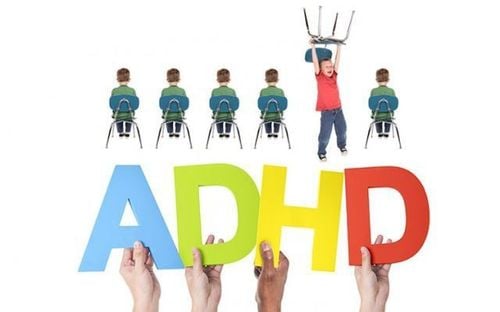
Thiếu hụt dopamine có thể gây rối loạn tăng động giảm chú ý
In addition, Dopamine has been linked in a number of other diseases. Dopamine also plays a role in diseases not related to mental health, one of which is Parkinson's disease, obesity was classified as a disease by the American Medical Association in 2013.
Parkinson's disease : Dopamine allows the Nerve cells in the brain communicate and control movement. In Parkinson's disease, a type of nerve cell degrades gradually. It doesn't have a signal to send anymore, so your body makes less dopamine. A chemical imbalance causes physical symptoms, which include tremors, stiffness, idiopathic slowness of movement, poor balance, and poor coordination. Doctors treat these symptoms with medications that increase levels of this chemical.
Obesity: if you take in more calories than you burn, you will gain weight. So why can't obese people lose weight simply by eating less? Reality is not that simple. They may encounter obstacles that others do not. They may have problems with self-motivation. This can affect the amount of food that obese people eat before feeling satisfied. Studies have been done showing that in people with this condition, the body may not release enough dopamine and another euphoria hormone, serotonin.
This hormone dopamine usually plays a secondary role in the body, but in some specific cases it is really a lifesaver. Doctors use prescription dopamine (Inotropin) to treat:
Low blood pressure Poor cardiac output (when the heart doesn't pump enough blood) Poor blood flow to vital organs Some cases of septic shock
Any medicine can cause unwanted effects even when taken under close supervision. Some of the side effects associated with the use of dopamine drugs include:
Irregular heartbeat Faster heartbeat Shortness of breath Chest pain Nausea and vomiting Headache Because many drugs interact with dopamine, so It is important for your doctor to know all the medicines you are taking.
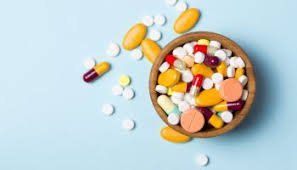
Sử dụng thuốc dopamine có thể gây nhịp tim không đều
3. What if your body is lacking in dopamine?
Dopamine deficiency is one of the reasons why you may not be in your best mood or experience the following feelings:
Decreased alertness Difficulty concentrating Decreased motivation and lack of enthusiasm Poor coordination Difficulty Difficulty moving Some medical conditions may be associated with low dopamine levels including:
Parkinson's disease: symptoms include tremors, slowed movement and sometimes psychosis. Depression: symptoms include sadness, trouble sleeping, and cognitive changes. Dopamine transporter deficiency syndrome: also known as infantile Parkinson's disease, this condition causes movement abnormalities similar to Parkinson's disease.
4. Lack of sleep can lower dopamine levels
Lack of dopamine can make you sleepy and conversely, lack of sleep can also reduce dopamine levels in the body.
Recent research has shown that sleep deprivation can lead to a significant reduction in the availability of dopamine receptors in the morning.
5. What happens when your body has too much dopamine?
Too much dopamine can make you feel like you're on top of the world, at least for a while. It can also put you in a severe state of euphoria.Releasing too much dopamine causes you to experience feelings likeMania Hallucinations Paranoia

Lượng dopamine ở mức quá cao có thể khiến bạn xuất hiện ảo giác
Too much dopamine can put you at higher risk of some other problems such as:
Obesity Addiction Schizophrenia
6. How do drugs affect dopamine levels in the body?
Some drugs can interact with dopamine in a habit forming way, such as Nicotine, alcohol or other drugs with addictive substances that will trigger the dopamine cycle.
These substances can make you feel more euphoric than you actually get.
As a habit forms, the brain responds by decreasing dopamine levels. You then need much higher amounts to achieve the same level of pleasure.
Overactivity also affects dopamine receptors in a way that makes you lose interest in other things. That can make you act more violent. Increasingly, you become less and less resistant to the use of these substances.
When it becomes more of a need than a want, this is called an addiction. If you try to stop, you may experience both physical and emotional withdrawal symptoms.
Exposure to this substance can trigger your libido and put you at very high risk of relapse even if you have stopped using these substances for a long time.
The hormone dopamine is not the only factor responsible for creating addiction. Other factors, such as genetics and environmental factors, play a role in this.
7. How do hormones affect dopamine levels?
Dopamine also interacts with other neurotransmitters and hormones. For example, the neurotransmitter glutamate is involved in pleasure cycles and feelings of euphoria in the brain.
A study was conducted to determine how stress and sex hormones affect dopamine neurotransmission during adolescence. The researchers note that testosterone, estrogen, and glucocorticoids interact with each other and impact the levels of dopamine present in the body. This can affect brain development and cognitive function from adolescence through adulthood.
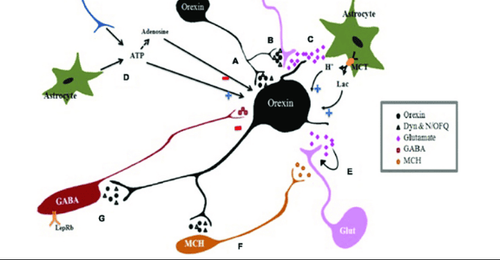
Dopamine cũng tương tác với các chất dẫn truyền thần kinh và hormone khác
Another study has also demonstrated that neurotransmitters are affected by many factors. Researchers have shown that sex hormones are very closely linked to neurotransmitters, including:
Dopamine Serotonin GABA Glutamate These interactions are complex and difficult to interpret. this regime. More research is needed to fully understand how dopamine interacts with other neurotransmitters and hormones.
Dopamine plays an important role in our body. It's called the "happy hormone" - it helps you feel elated and fulfilled when you achieve something. In addition, dopamine supports many other important things such as neurological and cognitive function. It can be said that dopamine is a catalyst that helps you feel happier, more energetic, and happier.
If you have any abnormality in movement or other symptoms of a mood disorder or you believe that you are addicted, you should see your doctor for a timely examination, diagnosis and treatment. time.
Any questions that need to be answered by a specialist doctor as well as customers wishing to be examined and treated at Vinmec International General Hospital, please contact the Website for the best service.
Please dial HOTLINE for more information or register for an appointment HERE. Download MyVinmec app to make appointments faster and to manage your bookings easily.
Reference sources: webmd.com, healthline.com



